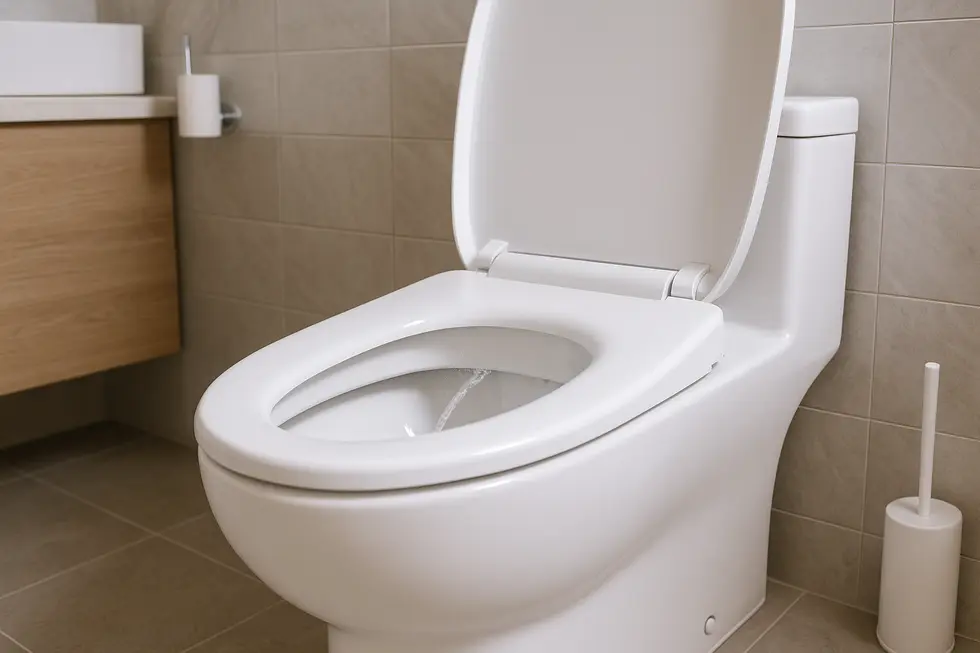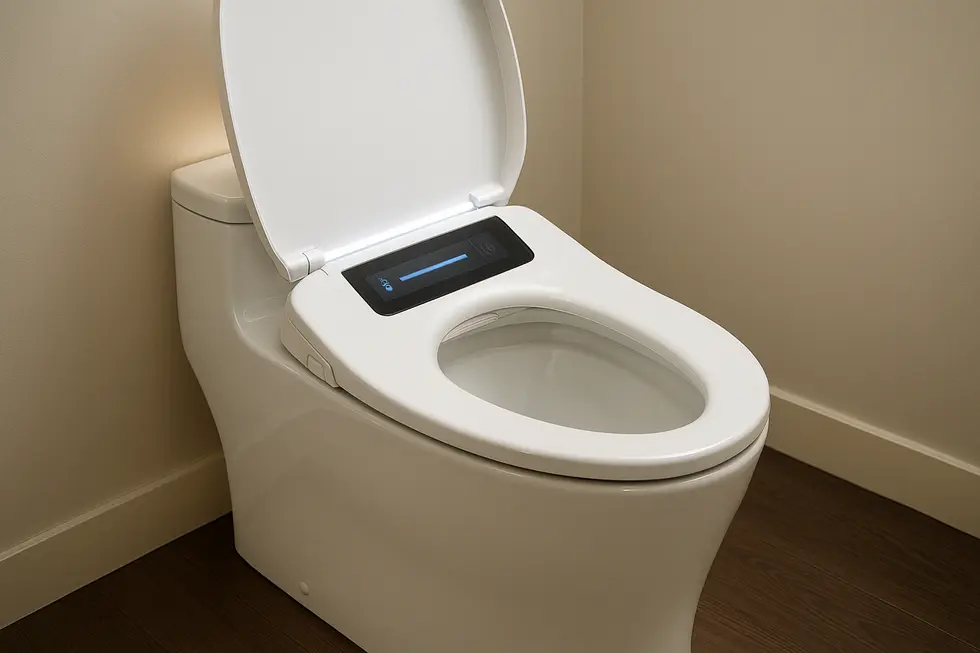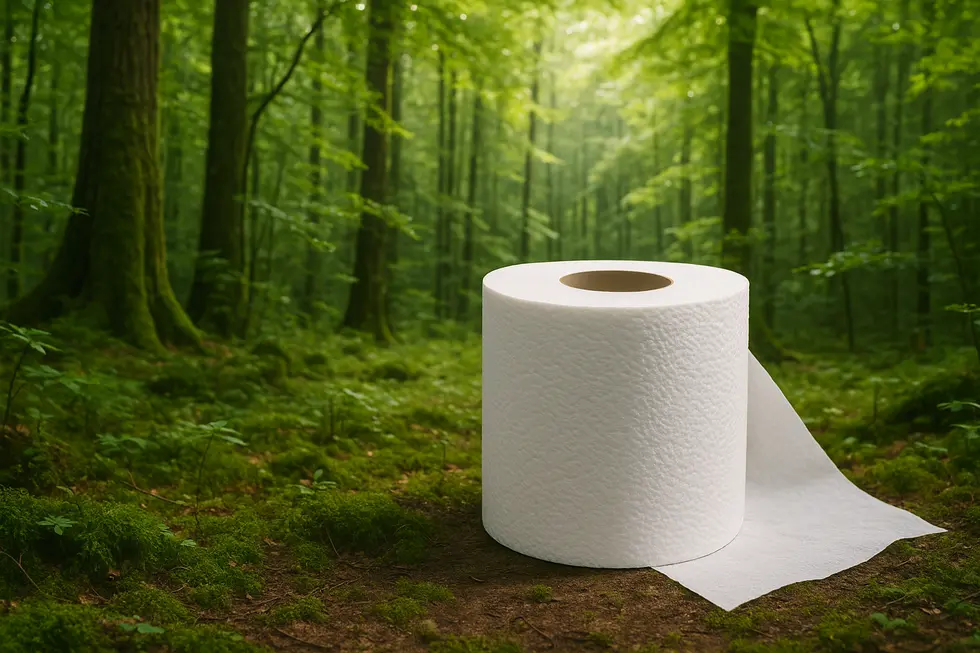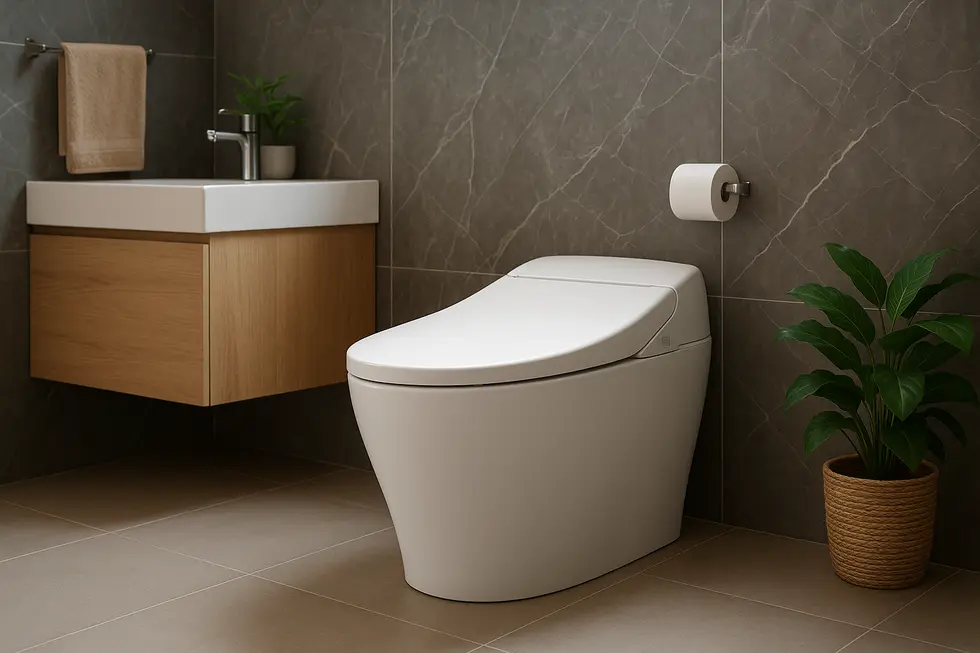Bidet Attachment, Bidet Seat, Handheld Bidet
Discover the Benefits of Bidet Toilets: Hygiene, Comfort, and Sustainability
Bidet toilets represent a notable advancement in bathroom technology, offering numerous benefits that go beyond traditional toilet use. They focus on enhancing hygiene through superior water cleansing, adding comfort and convenience with modern features, and promoting sustainability by reducing the reliance on toilet paper. This comprehensive guide delves into each of these aspects, demonstrating why bidet toilets are an essential addition to the contemporary bathroom experience.
Bidet Toilets: The Water Revolution for Personal Hygiene

Bidet toilets have emerged as a pivotal innovation in ensuring superior personal hygiene, redefining how we approach cleanliness in the bathroom. At the core of their design lies the simple yet effective use of water. This method harnesses the cleansing power of a gentle stream, which dramatically surpasses the efficacy of traditional toilet paper. By minimizing the residual bacteria and impurities left behind, bidets significantly decrease the likelihood of irritation and infections, particularly conditions like urinary tract infections and hemorrhoids.
For individuals with sensitive skin or those experiencing mobility challenges, bidets offer a world of benefits. The ease and thoroughness of water cleansing provide a gentle touch, reducing friction and discomfort associated with wiping. Moreover, modern bidet toilets often feature advanced systems such as adjustable water temperature and pressure controls, which enhance the user’s comfort and cleaning efficiency.
These innovations are not only a boon for personal health but also align with sustainable living principles. The environmental advantages are notable; bidets drastically cut down the necessity for toilet paper, thereby conserving resources and reducing waste. This is an important consideration in today’s ecologically conscious society, as it contributes to a diminished ecological footprint.
For those desiring flexibility, portable bidets present a convenient solution, particularly when on-the-go, at work, or traveling. Despite their compact nature, these devices offer the same hygienic benefits as their fixed counterparts, allowing users to maintain optimal cleanliness in any setting. Explore more about portable bidets.
Ultimately, the adoption of a bidet toilet is not solely about cleanliness—it’s a commitment to one’s health and the planet, encapsulating a reasoned and conscious approach to modern hygiene practices.
Innovative Bidet Toilets: Redefining Comfort and Convenience

Advancements in bidet toilets have revolutionized the bathroom experience, seamlessly blending hygiene with user comfort and ease. A plethora of modern features makes bidet toilets a marvel of innovation, delivering enhanced sanitation and convenience for today’s homeowners.
One standout innovation is the bowl pre-mist functionality. This feature sprays a fine mist of water onto the toilet bowl before use, stopping waste from sticking and thereby reducing cleaning needs. Users experience the added benefit of a consistently cleaner bowl, contributing to overall bathroom hygiene. Meanwhile, durable stainless steel nozzles offer resilience and enhanced precision, furthering hygiene through their resistant, non-porous texture.
Customized comfort is also at the forefront of these advancements. With integrated bidet functions, users enjoy adjustable water pressure and temperature settings tailored to their personal preferences. Such customization expands to the heated seats, which provide year-round comfort, particularly appealing during colder months or for those with mobility limitations.
Convenience peaks with automatic flushing and lid operation, both facilitated by sensors to minimize contact with contaminated surfaces. This automation not only enhances hygiene but also embodies the concept of a smart bathroom. Extending this intelligent design, self-cleaning mechanisms, including UV sterilization, ensure consistent sanitation without the need for manual cleaning.
To assist users during nighttime visits, night lights guide the way without disrupting sleep cycles. Complementing these are air dryers, drastically reducing the need for toilet paper, and deodorizers that maintain freshness without masking odors. In tandem, some models offer health monitoring capabilities, integrating sensors to analyze and provide wellness insights, thus tapping into the rising trend of health-conscious smart homes.
Altogether, these features underscore a growing trend in the hygienic automation and personalization of bathroom fixtures, further evidenced by the widespread adoption of these technologies in the market. For a deeper dive into the integration of bidet functionalities, check out the detailed discussions on what is a toilet bidet.
A Greener Clean: The Environmental Impact of Bidet Toilets

Amid growing environmental consciousness, the demand for sustainable living solutions has never been higher. Bidet toilets represent a leap forward in eco-friendly bathroom practices, offering significant potential to combat deforestation and resource depletion. One of the most pressing environmental benefits is the substantial reduction in toilet paper usage. Traditional toilet paper consumption requires an enormous amount of resources, with each roll consuming 12 to 37 gallons of water and contributing to the felling of millions of trees annually.
The impact of transitioning to bidets is profound. In the United States alone, it is estimated that widespread adoption of bidets could save up to 15 million trees each year. This shift translates into a dramatic reduction in landfill waste and a decrease in the energy consumed during the production and transportation of toilet paper. Households switching to bidets can cut their toilet paper usage by approximately 75%, significantly lowering their environmental footprint.
Moreover, the economic argument for bidets is compelling. While the initial cost may seem daunting, the long-term savings are substantial. Households can potentially save over $3,000 by reducing reliance on toilet paper. This financial incentive, coupled with a sustainable ethos, positions bidets as a smart choice for both the budget-conscious and environmentally aware consumers.
For those looking to make a positive environmental choice in their bathroom habits, integrating a bidet is a practical step. By reducing water use associated with toilet paper production and alleviating pressure on our planet’s forests, bidets play a crucial role in fostering a more sustainable world. More insights on this topic are available at Premier Bidets.
Final thoughts
Bidet toilets signify a leap forward in personal hygiene, delivering a cleaner, more comfortable, and eco-friendly bathroom experience. By adopting water-based cleaning methods over traditional toilet paper, they provide a superior cleanse, while their advanced features offer unparalleled comfort. Furthermore, embracing bidet toilets contributes positively to the environment by minimizing paper waste. In essence, these innovative fixtures meet the demands of health-conscious and environmentally aware individuals, transforming bathroom habits for the better.
Experience a new standard of clean with PEGABidet—designed for comfort, safety, and independence. Join thousands who trust us to make personal care simple and dignified. Contact us at contact@pegabidet.com
About us
PEGABidet is a brand owned by L.A NEXTGEN LLC, based in California. We design intuitive, hygienic, and accessible bathroom solutions that prioritize safety, dignity, and independence. Our mission is to make personal care effortless and empowering for people at every stage of life.

